IS INFECTIOUS PERITONITIS REALLY INCURABLE?
Опубліковано
27.02.2023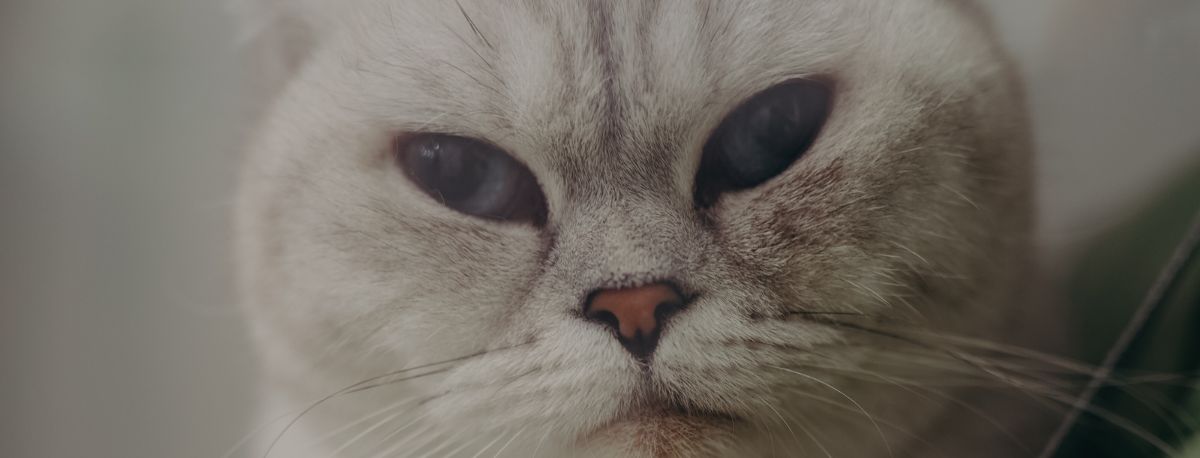
Feline infectious peritonitis (FIP)
Feline infectious peritonitis (FIP) is a dangerous viral disease caused by a mutated enteric virus from the Coronaviridae family. A common intestinal virus cannot cause a fatal disease, but under certain circumstances (stress, genetic predisposition of some breeds) it can mutate and cause systemic vasculitis and death of the animal.
Until February 2019, feline infectious peritonitis (FIP) was considered an incurable disease, and veterinarians were only able to improve the quality of life of pets for a short time. But thanks to the discovery of Dr. Niels C Pedersen and his team, it became possible to save even seriously ill animals.
A study was conducted, according to the results of which the drug GS-441524 showed its effectiveness in the fight against the mutated virus. The drug blocks the replication and reproduction of the virus in the body. As a result of this action, the cat's body can then fight the pathogen on its own. This significantly affects the survival of animals, which previously averaged 10 days after the final diagnosis.
Unfortunately, GS - 441524 has not been licensed in the United States by the Food and Drug Administration and there is no commercial name for the drug. However, the Chinese market has not lost momentum and at the moment, pets in many countries in Europe, America and Asia are successfully undergoing GS treatment. Now the diagnosis of infectious peritonitis is no longer a reason for euthanasia!
Now in Ukraine, Zoolux clinic has the opportunity to treat patients with infectious peritonitis.
How do the doctors of the felinology department establish the diagnosis?
First of all, it should be remembered that the diagnosis of infectious peritonitis is like a puzzle that needs to be assembled by an experienced doctor, because there is no definitive test for the disease. Therefore, there are several mandatory steps:
Detailed history taking
1. Clinical blood tests
- assessment of anemia and degree of recovery
- neutrophilia
- lymphopenia
2. Biochemical blood test
- assessment of the albumin/globulin ratio below 0.4
- decrease in albumin level
- increase in globulins
- increase in bilirubin level, total protein level.
3. Ultrasound of the abdominal cavity
- possible accumulation of fluid in the chest and abdominal cavities
- lymphadenopathy
- increased echogenicity of the liver
- characteristic changes in the kidneys
4. Analysis of the fluid
- assessment of organoleptic parameters - yellow, cloudy and viscous
- contains a large amount of protein
- does not contain bacteria
- PCR assessment for the presence of the coronavirus pathogen
The doctors of the felinology department can conduct all the tests in the clinic, and also work with the test results already received from other clinics. The general analysis of the situation allows and experience allows to correctly establish the diagnosis and start effective treatment.
How is treatment with GS -441424 going?
During the entire treatment period, the owners monitor the animal's condition in detail and provide information to the doctor who monitors the therapy.
The parameters to be monitored are weight, body temperature, appetite, and breathing patterns. The advantage of the department's work is an electronic database that stores all information about the patient. This allows you to quickly and at any time view basic information and decide on the correction of treatment and dosage, if necessary.
Every 2-3 weeks, a doctor's examination, blood tests, and ultrasound of the chest and abdominal cavity are recommended to assess the effectiveness of the drug.
The total duration of treatment is 84 days (12 weeks). The decision to complete treatment is made by the doctor after reassessment and blood tests.
The decision to terminate treatment can also be made based on the results of an ultrasound examination (absence of fluid and/or lymphadenopathy).
Side effects and complications
The main side effect is pain in the injection site and the formation of post-injection skin ulcers. For prevention, we sometimes cut the hair in the area of injections, alternate injection sites. To relieve the pain, doctors prescribe a combination of painkillers: gabapentin, in some cases - non-steroidal anti-inflammatory drugs.
If wounds occur, the healing process can take up to 2 weeks.
Treatment effectiveness
The results obtained in our clinic are encouraging. Just like those of our colleagues from Europe. The disease killed 14% of cats (whereas previously the mortality rate was 100%). Most animals have a life expectancy of more than a year, and we hope that our patients will continue to live as long and be healthy.
For more information about the treatment, please contact our doctors Valeria Chukhachova, Anna Starenko, Daryna Loveikina and Polina Milko.
Of course, the treatment is long and difficult, but the lives of felines are in the balance, and the doctors of the felinology department are constantly on the lookout for new methods of treatment and diagnostics.
Схожі статті
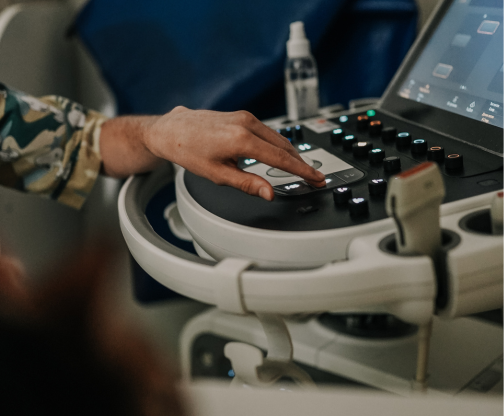
Preparation for ultrasound examination (ultrasound)
It is important to remember that proper preparation of the animal can significantly facilitate the abdominal ultrasound process. By performing this procedure, the doctor can detect possible problems in time and provide proper treatment. High-tech ultrasound is one of the ways to quickly and informatively diagnose and ensure a long and healthy life for our pets.

Brachycephalic syndrome in dogs and cats.
What exactly is brachycephalic syndrome and how to live with it, how to prevent complications for the body that this syndrome can lead to?
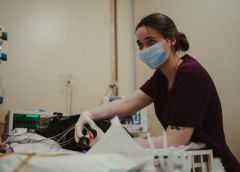
WHY ARE DOCTORS NOT ALL-POWERFUL?
A good doctor is worth its weight in gold. Everyone understands this and can spend years looking for the best one, and when they find one, they will expect miracles.
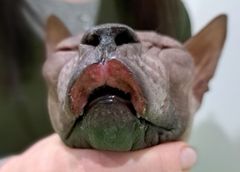
Allergy
Allergy
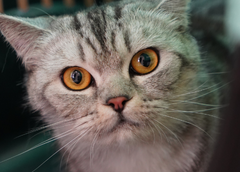
SYNDROME OF TIRED TANKLES IN CATS
Tired antennae of a cat or What do you know about fatigue?

Bacterial myocarditis
This disease is extremely rare in dogs. In cats, it is even less common - 0.006-0.018% of cases.

How to protect home lovers from radiation damage.
In recent days, we have received many calls asking for advice on the need to protect animals during a possible radiation exposure.
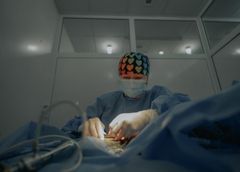
STERILIZATION AND CASTRATION OF CATS AND DOGS
Such operations do not affect the change of the animal's character. They can be done from an early age, in particular from 8 weeks. Convenience, first of all for the animal, is that the young organism has the ability

Side effects of antiparasitic drugs
The need for tick and flea treatments for pets is a well-known fact.
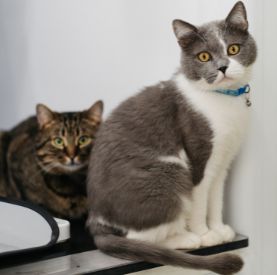
How you can help calm cats and reduce stress today
the head of the felinology department, tells us.

